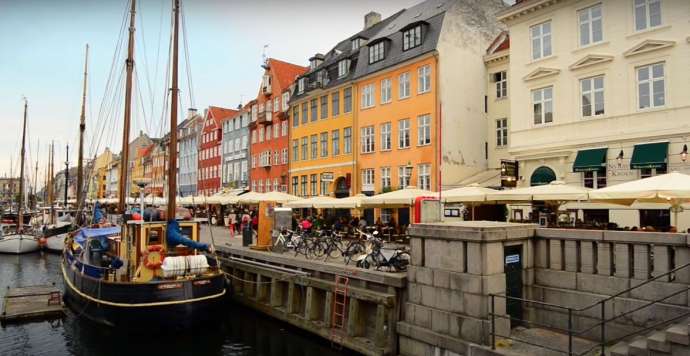Časoris is an online newspaper aimed at children. Each week we’ll take an article and post it here as a Slovene-English dual text.
Dansko življenje brez mask
Danish life without masks
Written by Dora Adamič, translated by JL Flanner & G Translate
Danska je septembra odpravila vse ukrepe proti novemu koronavirusu.
Denmark lifted all measures against the new coronavirus in September.
To pomeni, da maske niso obvezne v zaprtih prostorih. Javno življenje, vključno s šolami in univerzami, ostaja odprto.
This means that masks are not mandatory indoors. Public life, including schools and universities, remains open.
Cepljenih je več kot 80 odstotkov prebivalcev. Za primerjavo: v Sloveniji je precepljenost nekaj več kot 40 odstotkov.
More than 80 percent of the population is vaccinated. For comparison: in Slovenia, vaccination coverage is just over 40 percent.
Toda cepljenje ni edini razlog za uspešni spopad Dancev z epidemijo.
But vaccination is not the only reason for the successful fight of the Danes with the epidemic.
Ko je leta 2020 novi koronavirus pričel svoj smrtonosni pohod po Evropi, se je Danska med prvimi odločila za hitro in množično zaprtje javnega življenja. Danci so nato glede na razmere ukrepe sproščali ali zaostrovali.
When the new coronavirus began its deadly march across Europe in 2020, Denmark was among the first to opt for a rapid and mass closure of public life. The Danes then relaxed or tightened the measures, depending on the situation.
Toda ukrepi pomagajo le, če se jih ljudje držijo. Tudi solidarnost in zaupanje državljanov vanje sta bila pomembna za uspešen spopad z epidemijo.
But measures only help if people stick to them. Solidarity and citizens' trust in them were also important for a successful fight against the epidemic.
Ne kaže zanemariti niti tretjega razloga: to so njihove navade. Danci se redko rokujejo, objemajo pa se le z najbližjimi prijatelji. Omejenost stikov pa pomembno zmanjša možnost za prenos virusa.
We can’t ignore a third reason: these are their habits. Danes rarely shake hands, but only hug their closest friends. However, limited contact significantly reduces the possibility of virus transmission.
V šali bi lahko rekli, da so Danci spoštovali priporočilo o medsebojni razdalji, še preden se je pojavil koronavirus.
We could jokingly say that the Danes followed the recommendation of mutual distance even before the coronavirus appeared.
Danci so namreč zadovoljni z majhnimi rečmi v življenju. Namesto druženja s prijatelji v lokalih cenijo večere doma in čas, ki ga preživijo z družino.
Namely, Danes are happy with the little things in life. Instead of hanging out with friends in bars, they appreciate evenings at home and the time they spend with family.
Temu pravijo hygge; beseda zajema občutke ugodja in povezanosti s skupnostjo.
This is called hygge; the word embraces feelings of comfort and connection to the community.
In nenazadnje, učinkovit boj z epidemijo je omogočil tudi kakovosten zdravstveni sistem, ki je dostopen vsem, ter epidemiološko utemeljeni ukrepi, ki so bili namenjeni dobrobiti ljudstva.
Last but not least, the effective fight against the epidemic has also been made possible by a quality health system that is accessible to all, and by epidemiologically justified measures aimed at the well-being of the people.
»Kljub trenutni dobri epidemiološki sliki epidemije ni konec. Zato danska vlada ne bo oklevala pri uvajanju novih ukrepov, če bodo ti potrebni,« pa opozarja danski zdravstveni minister Magnus Heunicke.
“Despite the current good epidemiological picture, the epidemic is not over. Therefore, the Danish government will not hesitate to introduce new measures if necessary, " warns Danish Health Minister Magnus Heunicke.
Read more stories and improve your Slovene at Časoris, while all our dual texts can be found here.







